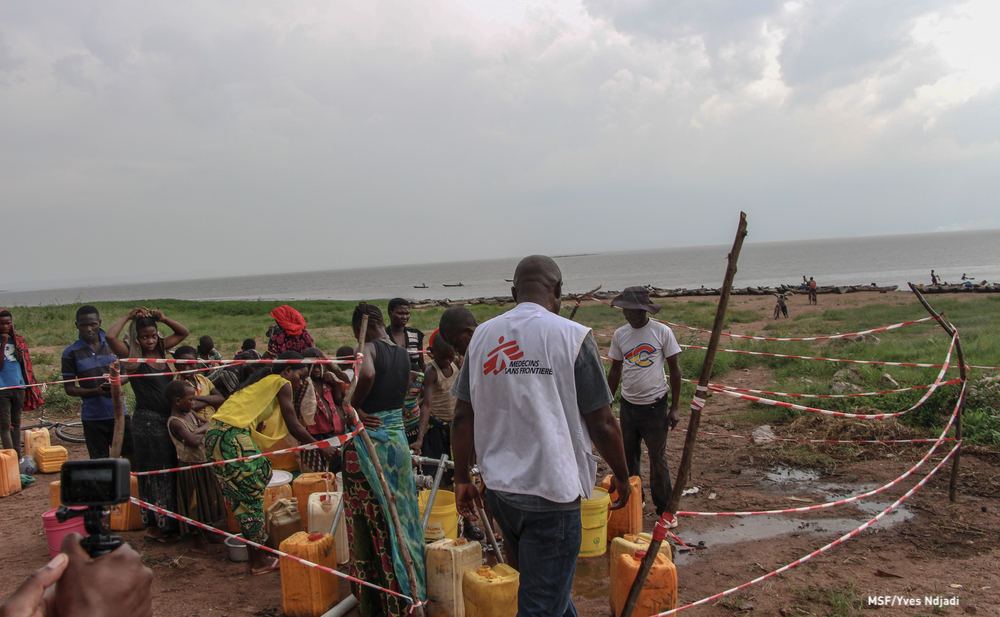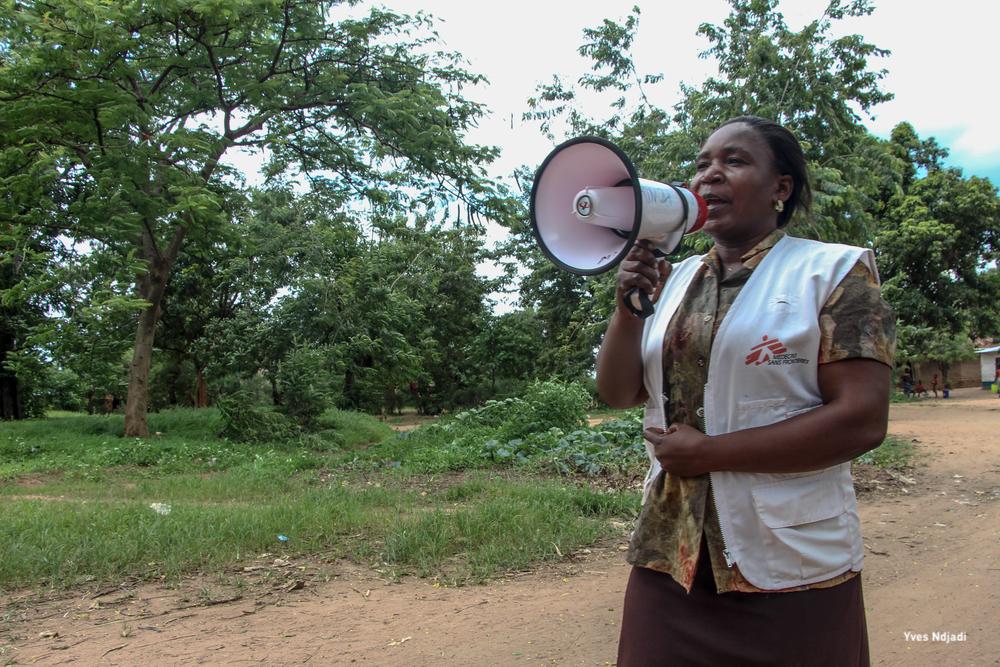A cholera epidemic has been raging in Mulongo, in the west of Democratic Republic of Congo (DRC), since October 2021. So far, more than 1,400 people have caught the disease, which has spread through 17 of the 24 health areas in Mulongo, a rural area of Malemba Nkulu territory in Haut Lomami province.
Cholera is a bacterial disease spread through contaminated water. In most patients, it causes severe diarrhoea and dehydration, but without treatment it can be fatal. Nine people are known to have died in this outbreak, which has an estimated overall case fatality rate of 0.6%, including deaths in the community.
"I came in almost dead,” says Rigo. “I was vomiting and having diarrhoea. We thought our family had been poisoned – we didn't know it was cholera. Two days ago, I started feeling better and my condition has improved slowly since I came to hospital. My son was discharged from here this morning."
Aged just 33, Rigo looks like an old man. His thin body is curled up on a makeshift bed in the lobby of Mulongo cholera treatment centre. His eyes are sunken, and his body weakened by dehydration. Both he and his son contracted the disease.
In response to the epidemic, a team from international medical organisation Médecins Sans Frontières/Doctors Without Borders (MSF) has set up a 34-bed cholera treatment centre in the hospital compound at Kabamba, the current epicentre of the epidemic. MSF has also set up two cholera treatment units with nine and six beds in the health areas of Ngoya and Bukena.
Insufficient response in the face of multiple needs

A water chlorination point installed to help prevent cholera cases in Haut-Lomami
Mulongo has not experienced cholera cases on this scale since 2017. Today, local authorities are overwhelmed and lack the technical and logistical capacity to deal with the outbreak. The lack of response from other organisations is another challenge.
"MSF cannot do everything alone,” says MSF project coordinator Clément Shap. “It is essential that other organisations and partners of the Ministry of Health respond in this area to the multiple needs of the population, particularly in regard to water, hygiene and sanitation."
"During the dry season, these wells and rivers dry up and the population is forced to rely on water from the river and the lake," says Dr Grégoire Tshilongo, MSF's medical activity manager in Mulongo. "There is also the rainy season with flooding along the Congo River and Lake Kabamba. All of these elements are major factors in the outbreak of cholera across the entire area.”
MSF teams are treating patients with severe cholera in the cholera treatment centre and two cholera treatment units and treating people with milder symptoms at six oral rehydration points set up in the area.
